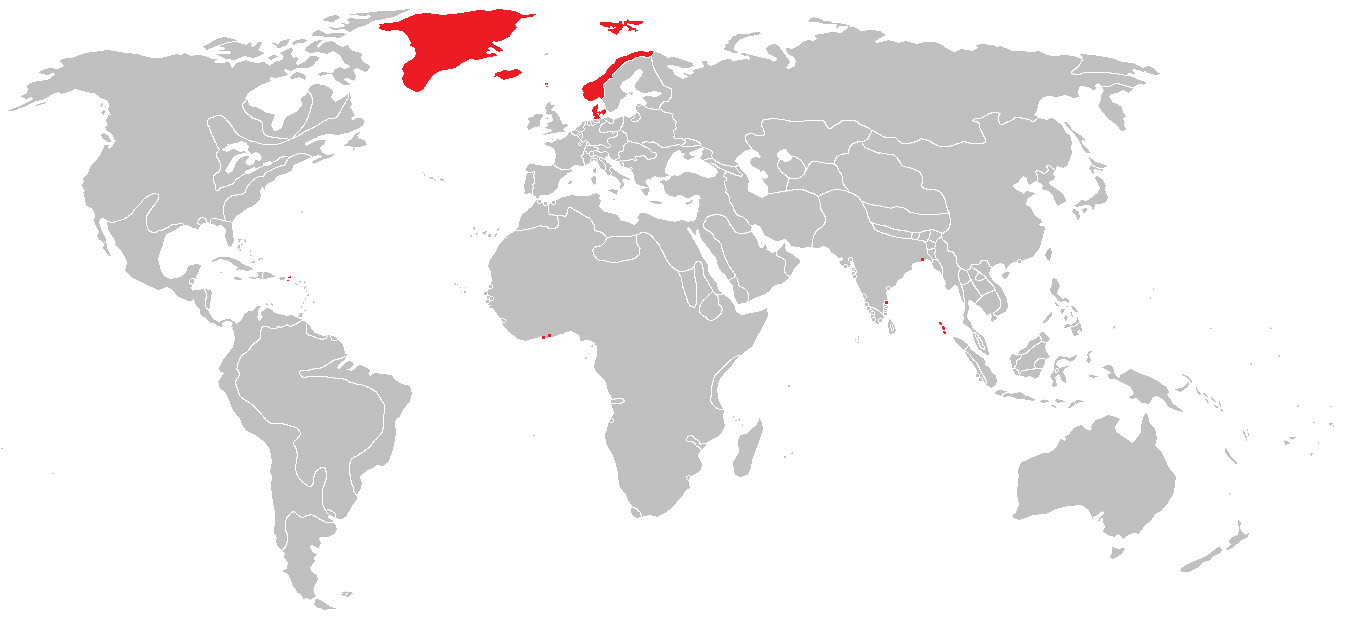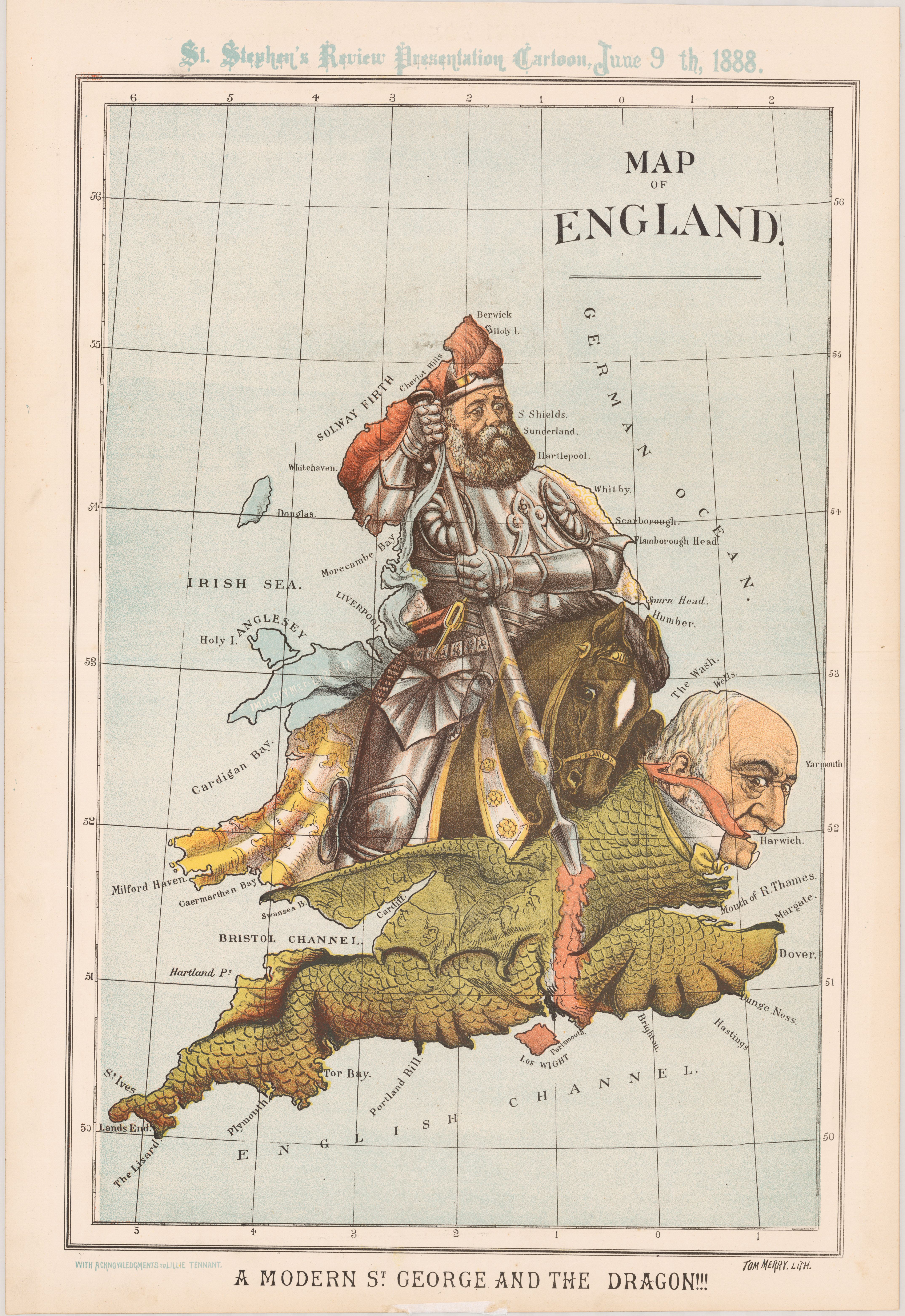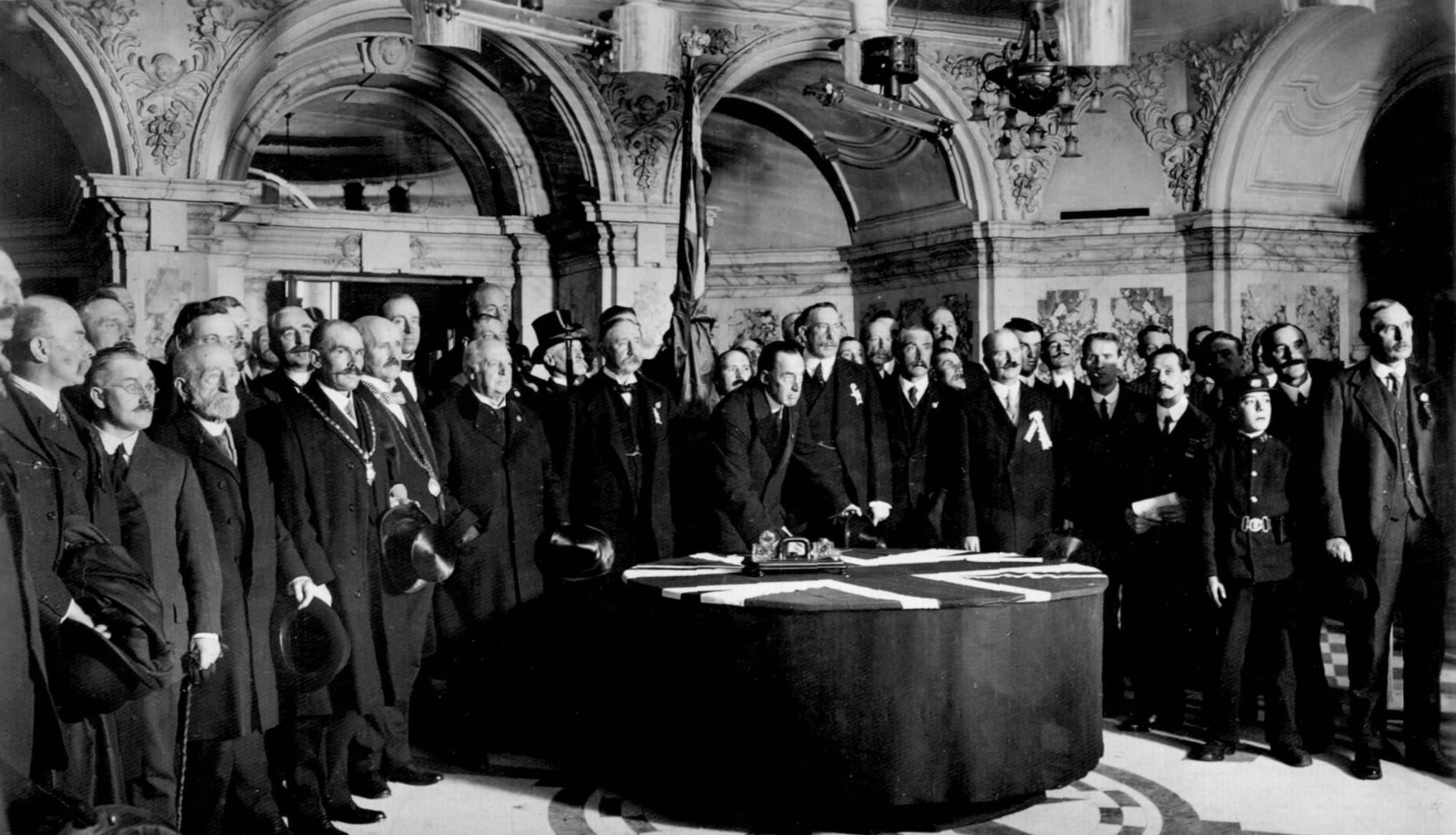|
Dual Monarchy
Dual monarchy occurs when two separate kingdoms are ruled by the same monarch, follow the same foreign policy, exist in a customs union with each other, and have a combined military but are otherwise self-governing. The term is typically used to refer to Austria-Hungary, a dual monarchy that existed from 1867 to 1918 that spanned across parts of Central and Eastern Europe, but applies to other dual monarchies such as the Kingdom of Nejd and Hejaz. Dual monarchy is a fairly rare form of government, and has been practiced few times in history, although many of the world's most powerful countries have been or are dual monarchies. In the 1870s, using the Dual Monarchy of Austria-Hungary as a model, the Prince of Wales (later King Edward VII) and William Ewart Gladstone proposed that Ireland and Great Britain form a dual monarchy. Their efforts were unsuccessful, but the idea was later used in 1904 by Arthur Griffith in his seminal work, ''The Resurrection of Hungary''. Griffit ... [...More Info...] [...Related Items...] OR: [Wikipedia] [Google] [Baidu] |
Monarch
A monarch is a head of stateWebster's II New College DictionarMonarch Houghton Mifflin. Boston. 2001. p. 707. Life tenure, for life or until abdication, and therefore the head of state of a monarchy. A monarch may exercise the highest authority and power in the Sovereign state, state, or others may wield that power on behalf of the monarch. Usually a monarch either personally inheritance, inherits the lawful right to exercise the state's sovereign rights (often referred to as ''the throne'' or ''the Crown, the crown'') or is elective monarchy, selected by an established process from a family or cohort eligible to provide the nation's monarch. Alternatively, an individual may self-proclaimed monarchy, proclaim themself monarch, which may be backed and Legitimacy (political), legitimated through acclamation, right of conquest or a combination of means. If a young child is crowned the monarch, then a regent is often appointed to govern until the monarch reaches the requisite adult a ... [...More Info...] [...Related Items...] OR: [Wikipedia] [Google] [Baidu] |
Irish War Of Independence
The Irish War of Independence () or Anglo-Irish War was a guerrilla war fought in Ireland from 1919 to 1921 between the Irish Republican Army (IRA, the army of the Irish Republic) and British forces: the British Army, along with the quasi-military Royal Irish Constabulary (RIC) and its paramilitary forces the Auxiliaries and Ulster Special Constabulary (USC). It was part of the Irish revolutionary period. In April 1916, Irish republicans launched the Easter Rising against British rule and proclaimed an Irish Republic. Although it was crushed after a week of fighting, the Rising and the British response led to greater popular support for Irish independence. In the December 1918 election, republican party Sinn Féin won a landslide victory in Ireland. On 21 January 1919 they formed a breakaway government (Dáil Éireann) and declared Irish independence. That day, two RIC officers were killed in the Soloheadbeg ambush by IRA volunteers acting on their own initiative. The conf ... [...More Info...] [...Related Items...] OR: [Wikipedia] [Google] [Baidu] |
Denmark–Norway
Denmark–Norway ( Danish and Norwegian: ) was an early modern multi-national and multi-lingual real unionFeldbæk 1998:11 consisting of the Kingdom of Denmark, the Kingdom of Norway (including the then Norwegian overseas possessions: the Faroe Islands, Iceland, Greenland, and other possessions), the Duchy of Schleswig, and the Duchy of Holstein.Feldbæk 1998:21f, 125, 159ff, 281ff The state also claimed sovereignty over three historical peoples: Frisians, Gutes and Wends.Feldbæk 1998:21 Denmark–Norway had several colonies, namely the Danish Gold Coast, the Nicobar Islands, Serampore, Tharangambadi, and the Danish West Indies.Feldbæk 1998:23 The union was also known as the Dano-Norwegian Realm (''Det dansk-norske rige''), Twin Realms (''Tvillingerigerne'') or the Oldenburg Monarchy (''Oldenburg-monarkiet'') The state's inhabitants were mainly Danes, Norwegians and Germans, and also included Faroese, Icelanders and Inuit in the Norwegian overseas possessions, a Sami ... [...More Info...] [...Related Items...] OR: [Wikipedia] [Google] [Baidu] |
Hundred Years' War
The Hundred Years' War (; 1337–1453) was a series of armed conflicts between the kingdoms of England and France during the Late Middle Ages. It originated from disputed claims to the French throne between the English House of Plantagenet and the French royal House of Valois. Over time, the war grew into a broader power struggle involving factions from across Western Europe, fuelled by emerging nationalism on both sides. The Hundred Years' War was one of the most significant conflicts of the Middle Ages. For 116 years, interrupted by several truces, five generations of kings from two rival dynasties fought for the throne of the dominant kingdom in Western Europe. The war's effect on European history was lasting. Both sides produced innovations in military technology and tactics, including professional standing armies and artillery, that permanently changed warfare in Europe; chivalry, which had reached its height during the conflict, subsequently declined. Stronger ... [...More Info...] [...Related Items...] OR: [Wikipedia] [Google] [Baidu] |
Puppet State
A puppet state, puppet régime, puppet government or dummy government, is a state that is ''de jure'' independent but ''de facto'' completely dependent upon an outside power and subject to its orders.Compare: Puppet states have nominal sovereignty, but a foreign power effectively exercises control through means such as financial interests, economic, or military support. By leaving a local government in existence the outside Powers evade all responsibility, while at the same time successfully paralyzing the Government they tolerate. Puppet states are distinguished from allies, which choose their actions on their own or in accordance with treaties they voluntarily entered. Puppet states are forced into providing legal endorsement for actions already taken by a foreign power. Characteristics A puppet state preserves the external paraphernalia of independence (such as a name, flag, anthem, constitution, law codes, motto and government), but in reality it is an organ of an ... [...More Info...] [...Related Items...] OR: [Wikipedia] [Google] [Baidu] |
Dual Monarchy Of England And France
The dual monarchy of England and France existed during the latter phase of the Hundred Years' War when Charles VII of France and Henry VI of England disputed the succession to the throne of France. It commenced on 21 October 1422 upon the death of King Charles VI of France, who had signed the Treaty of Troyes which gave the French crown to his son-in-law Henry V of England and Henry's heirs. It excluded King Charles's son, the Dauphin Charles, who by right of primogeniture was the heir to the Kingdom of France. Although the Treaty was ratified by the Estates-General of France, the act was a contravention of the French law of succession which decreed that the French crown could not be alienated. Henry VI, son of Henry V, became king of both England and France and was recognized only by the English and Burgundians until 1435 as King Henry II of France. He was crowned King of France on 16 December 1431. In practical terms, King Henry's claim to de jure sovereignty and legitimacy as ... [...More Info...] [...Related Items...] OR: [Wikipedia] [Google] [Baidu] |
Henry VI Of England
Henry VI (6 December 1421 – 21 May 1471) was King of England and Lord of Ireland from 1422 to 1461 and again from 1470 to 1471, and disputed King of France from 1422 to 1453. The only child of Henry V, he succeeded to the English throne at the age of nine months upon his father's death, and succeeded to the French throne on the death of his maternal grandfather, Charles VI, shortly afterwards. Henry inherited the long-running Hundred Years' War (1337–1453), in which his uncle Charles VII contested his claim to the French throne. He is the only English monarch to have been also crowned King of France, in 1431. His early reign, when several people were ruling for him, saw the pinnacle of English power in France, but subsequent military, diplomatic, and economic problems had seriously endangered the English cause by the time Henry was declared fit to rule in 1437. He found his realm in a difficult position, faced with setbacks in France and divisions among the nobilit ... [...More Info...] [...Related Items...] OR: [Wikipedia] [Google] [Baidu] |
Henry V Of England
Henry V (16 September 1386 – 31 August 1422), also called Henry of Monmouth, was King of England and Lord of Ireland from 1413 until his death in 1422. Despite his relatively short reign, Henry's outstanding military successes in the Hundred Years' War against France made England one of the strongest military powers in Europe. Immortalised in Shakespeare's " Henriad" plays, Henry is known and celebrated as one of the greatest warrior-kings of medieval England. During the reign of his father Henry IV, Henry gained military experience fighting the Welsh during the revolt of Owain Glyndŵr and against the powerful aristocratic Percy family of Northumberland at the Battle of Shrewsbury. Henry acquired an increased role in England's government due to the king's declining health, but disagreements between father and son led to political conflict between the two. After his father's death in 1413, Henry assumed control of the country and asserted the pending English clai ... [...More Info...] [...Related Items...] OR: [Wikipedia] [Google] [Baidu] |
Government Of Ireland Bill 1886
The Government of Ireland Bill 1886, commonly known as the First Home Rule Bill, was the first major attempt made by a British government to enact a law creating home rule for part of the United Kingdom of Great Britain and Ireland. It was introduced on 8 April 1886 by Liberal Prime Minister William Gladstone to create a devolved assembly for Ireland which would govern Ireland in specified areas. The Irish Parliamentary Party under Charles Stewart Parnell had been campaigning for home rule for Ireland since the 1870s. The bill, like his Irish Land Act 1870, was very much the work of Gladstone, who excluded both the Irish MPs and his own ministers from participation in the drafting. Following the Purchase of Land (Ireland) Act 1885 it was to be introduced alongside a new Land Purchase Bill to reform tenant rights, but the latter was abandoned. Alvin Jackson, ''Home Rule: An Irish History 1800—2000'' Key aspects The key aspects of the 1886 bill were: Legislative * A unica ... [...More Info...] [...Related Items...] OR: [Wikipedia] [Google] [Baidu] |
Home Rule Crisis
The Home Rule Crisis was a political and military crisis in the United Kingdom of Great Britain and Ireland that followed the introduction of the Third Home Rule Bill in the House of Commons of the United Kingdom in 1912. Unionists in Ulster, determined to prevent any measure of home rule for Ireland, formed a paramilitary force, the Ulster Volunteers, which threatened to resist by force of arms the implementation of the Act and the authority of any Dublin Parliament. Irish nationalists responded by setting up the Irish Volunteers "to secure the rights and liberties common to all the people of Ireland". Both sides then began importing weapons and ammunition from Germany, in the Larne gun-running and Howth gun-running incidents. HM Government's ability to face down unionist defiance was thrown into question by the " Curragh incident", when dozens of British Army officers threatened to resign or face dismissal rather than deploy into Ulster (ostensibly to secure arms against Ulst ... [...More Info...] [...Related Items...] OR: [Wikipedia] [Google] [Baidu] |
Irish Home Rule Movement
The Irish Home Rule movement was a movement that campaigned for Devolution, self-government (or "home rule") for Ireland within the United Kingdom of Great Britain and Ireland. It was the dominant political movement of Irish nationalism from 1870 to the end of World War I. Isaac Butt founded the Home Government Association in 1870. This was succeeded in 1873 by the Home Rule League, and in 1882 by the Irish Parliamentary Party. These organisations campaigned for home rule in the House of Commons of the United Kingdom, British House of Commons. Under the leadership of Charles Stewart Parnell, the movement came close to success when the Liberal Party (UK), Liberal government of William Ewart Gladstone introduced the Government of Ireland Bill 1886, First Home Rule Bill in 1886, but the bill was defeated in the House of Commons after a split in the Liberal Party. After Parnell's death, Gladstone introduced the Government of Ireland Bill 1893, Second Home Rule Bill in 1893; it pass ... [...More Info...] [...Related Items...] OR: [Wikipedia] [Google] [Baidu] |
Laws In Wales Acts 1535 And 1542
The Laws in Wales Acts 1535 and 1542 ( cy, Y Deddfau Cyfreithiau yng Nghymru 1535 a 1542) were Acts of the Parliament of England, and were the parliamentary measures by which Wales was annexed to the Kingdom of England. Moreover, the legal system of England was extended to Wales and the norms of English administration were introduced; with the intention to create a single state and legal jurisdiction. The Acts were passed during the reign of King Henry VIII of England, who came from the Welsh Tudor dynasty, and are sometimes referred to as the Acts of Union. Before these Acts, Wales was excluded from Parliamentary representation and divided between the Principality of Wales and many feudal statelets called the marcher Lordships. The Act declared King Henry's intentions, that because of differences in law and language: – and therefore: Names and dates They are sometimes misleadingly known as the Acts of Union ( cy, Y Deddfau Uno), but the legal short title of each Act ... [...More Info...] [...Related Items...] OR: [Wikipedia] [Google] [Baidu] |




.jpg)


